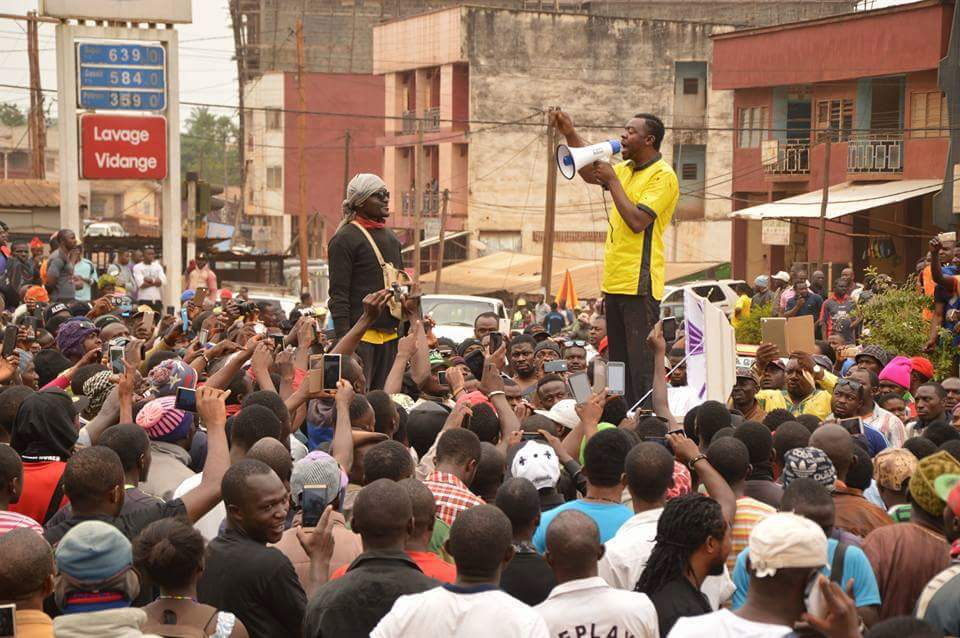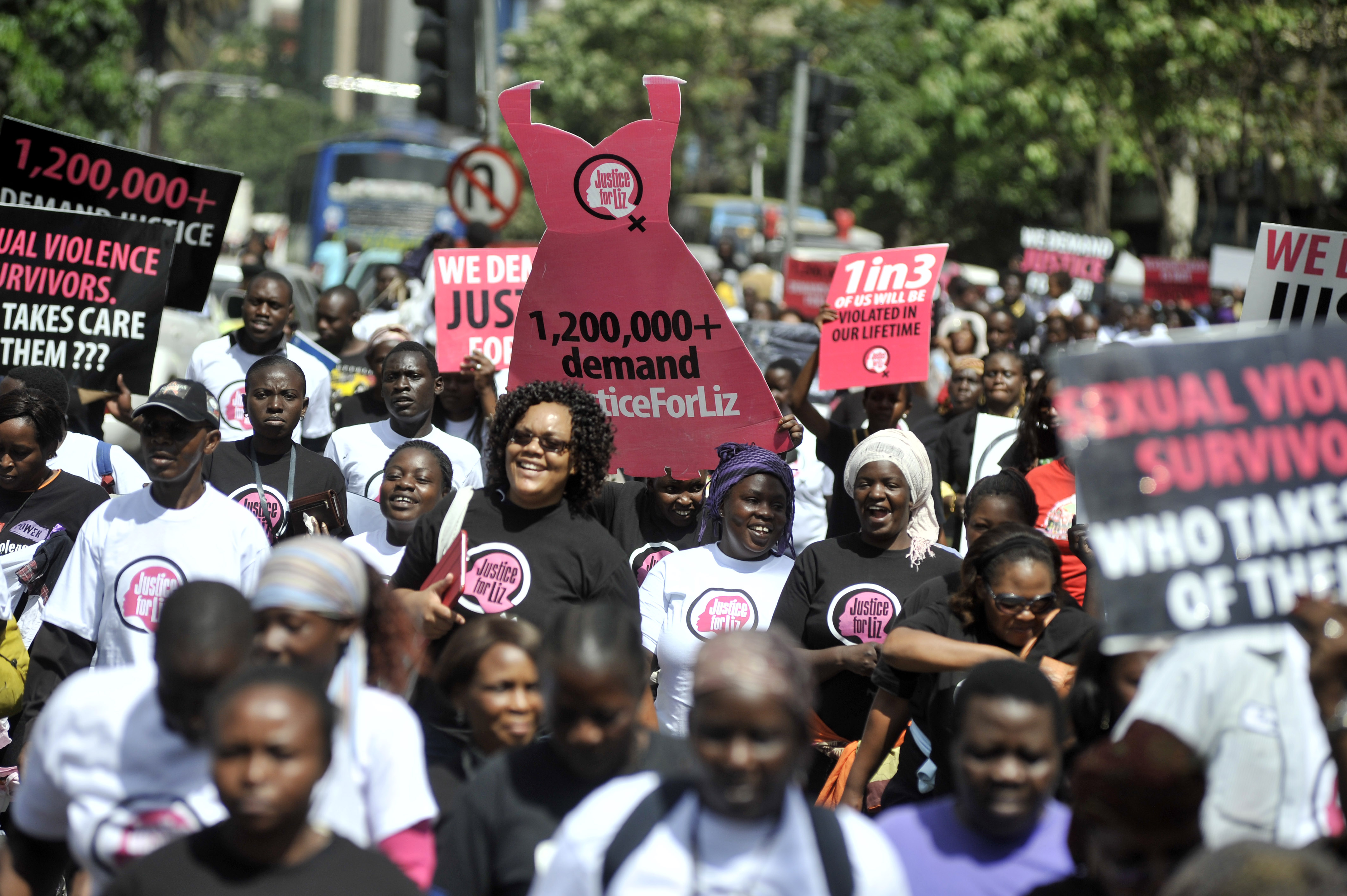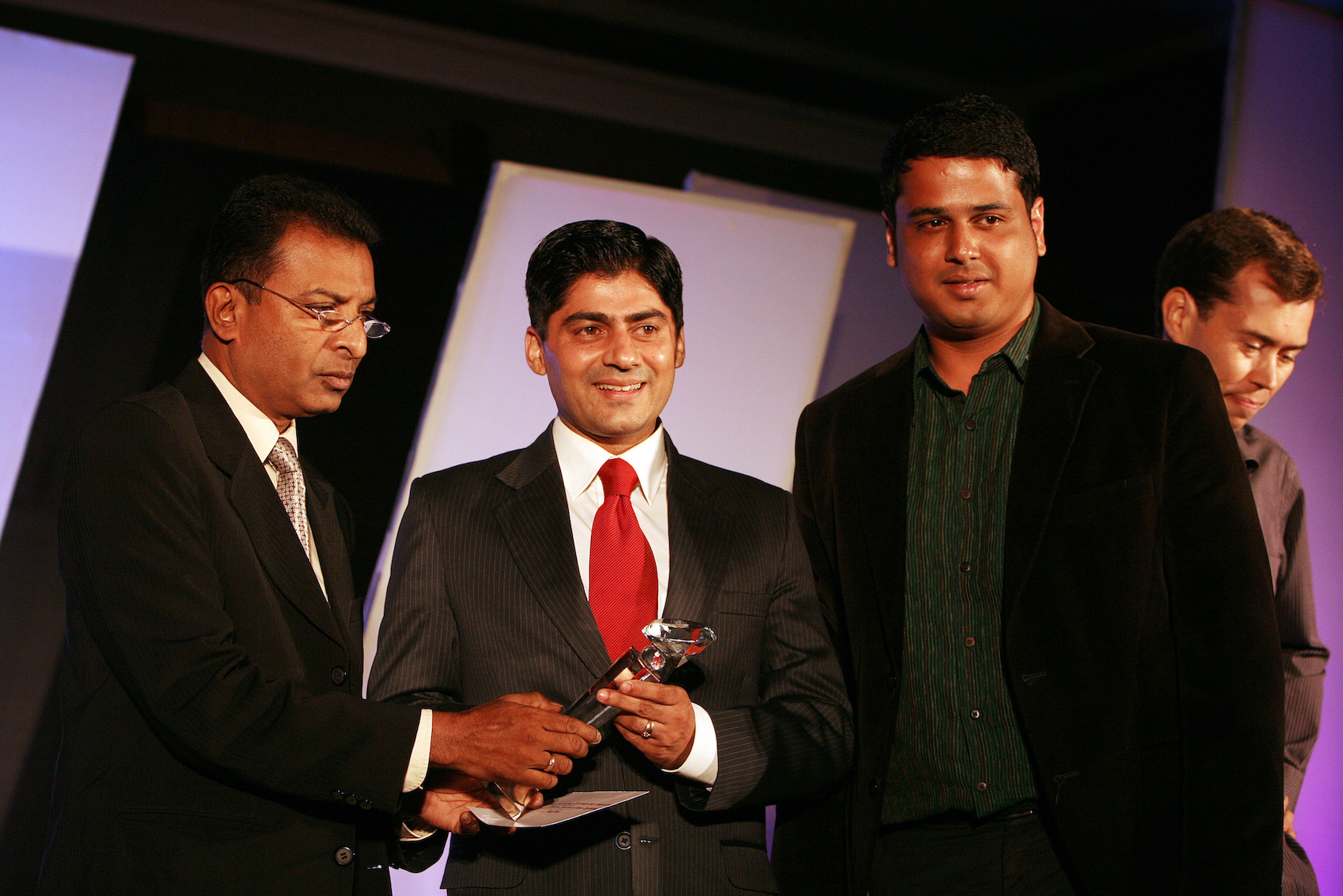Al Jazeera Journalism Review has interviewed more than 20 journalists in India-controlled Kashmir who are facing exhausting, insurmountable obstacles to doing their jobs safely every single day
The brutal murder of Syed Shujaat Bukhari, editor of the daily newspaper, Rising Kashmir, on June 14, 2018 marked a turning point for journalists in Kashmir. Bukhari had been shot dead in his car close to his office and everyone knew why.
Bukhari had been very vocal about the fact that threats and intimidation against Kashmiri journalists had reached intolerable levels. In 2016, he wrote an article for the BBC about a raid on his news organisation by the authorities, decrying the climate of fear many were living in. He wrote: "Threats to life, intimidation, assault, arrest and censorship have been part of the life of a typical local journalist."
His death confirmed to many what they already feared - that being a journalist in Kashmir can be deadly. Indeed, just one year later, the situation would become critical when India repealed Article 370 which had previously granted self-governing status to the region. Fearing mass protests, the government ramped up the internet blackouts it had already been routinely imposing on Kashmir and intensified its practice of detaining any journalist who dared voice dissent.
I went to a psychiatrist as I was not able to focus. This in turn impacted my work
The result has been a prolonged and profound crisis of mental health among Kashmiri journalists. Many have simply abandoned the profession or moved to another state. Of those who remain, most are suffering the psychological effects of living in a state of fear and worry.
One journalist in Kashmir who works for a national news portal and wished to remain anonymous told Al Jazeera Journalism Review that witnessing this sort of violence against journalists - as well as the litany of arrests and summons endured by journalists in the region - has had a severe impact on his mental health. “I went to a psychiatrist as I was not able to focus. This in turn impacted my work,” he says. He is far from alone.
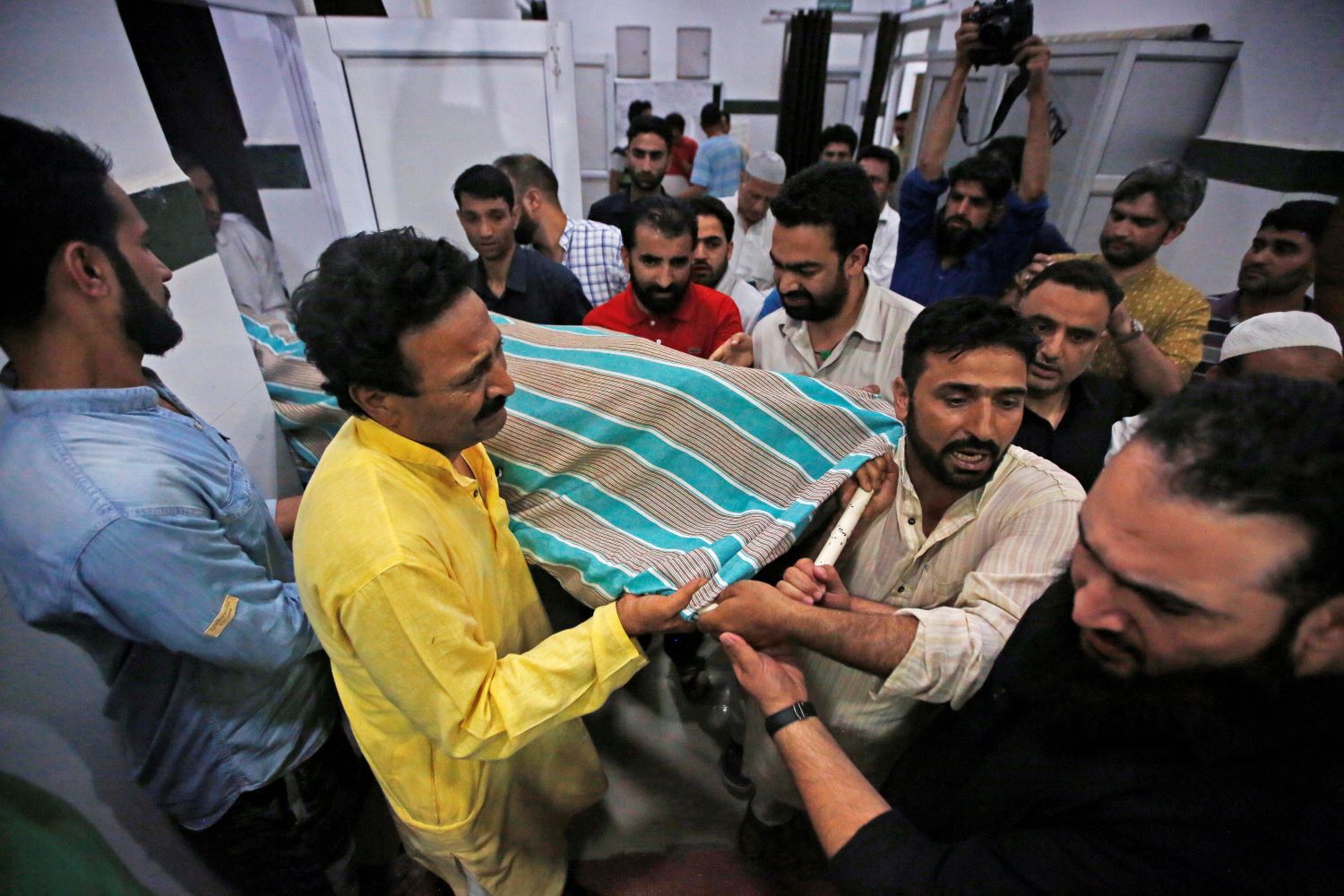
‘How can we even work?’
Since 2014, when Narendra Modi, India’s Prime Minister and leader of the Hindu nationalist Bharatiya Janata Party, came to power, the freedom to express dissent has slowly been dismantled. Ranked at 140 in 2014, India’s place on the Press Freedom Index has slipped to 161, according to the 2023 World Press Freedom Index published by the global media watchdog, Reporters Without Borders (RSF).
On UNESCO for World Press Freedom Day in May, Indian journalist Rana Ayyub talked about the experience of journalists in India, which she and many like her face every day. She explained how she is frequently subjected to online harassment and abuse from trolls who, she alleges, are often followed on Twitter by the Prime Minister of India himself.
“And we do not even talk about the mental health aspect of it. After we [have] fought all these cases, when we get back home, do you even have the energy to do your journalism?” she added.
In other words, threatening the mental health of journalists threatens journalism itself.
Similar concerns have been raised by the International Press Institute, which says that media freedom in India-administered Kashmir is under threat, especially after the repeal of Article 370 in 2019 which previously granted Kashmir self-administration status.
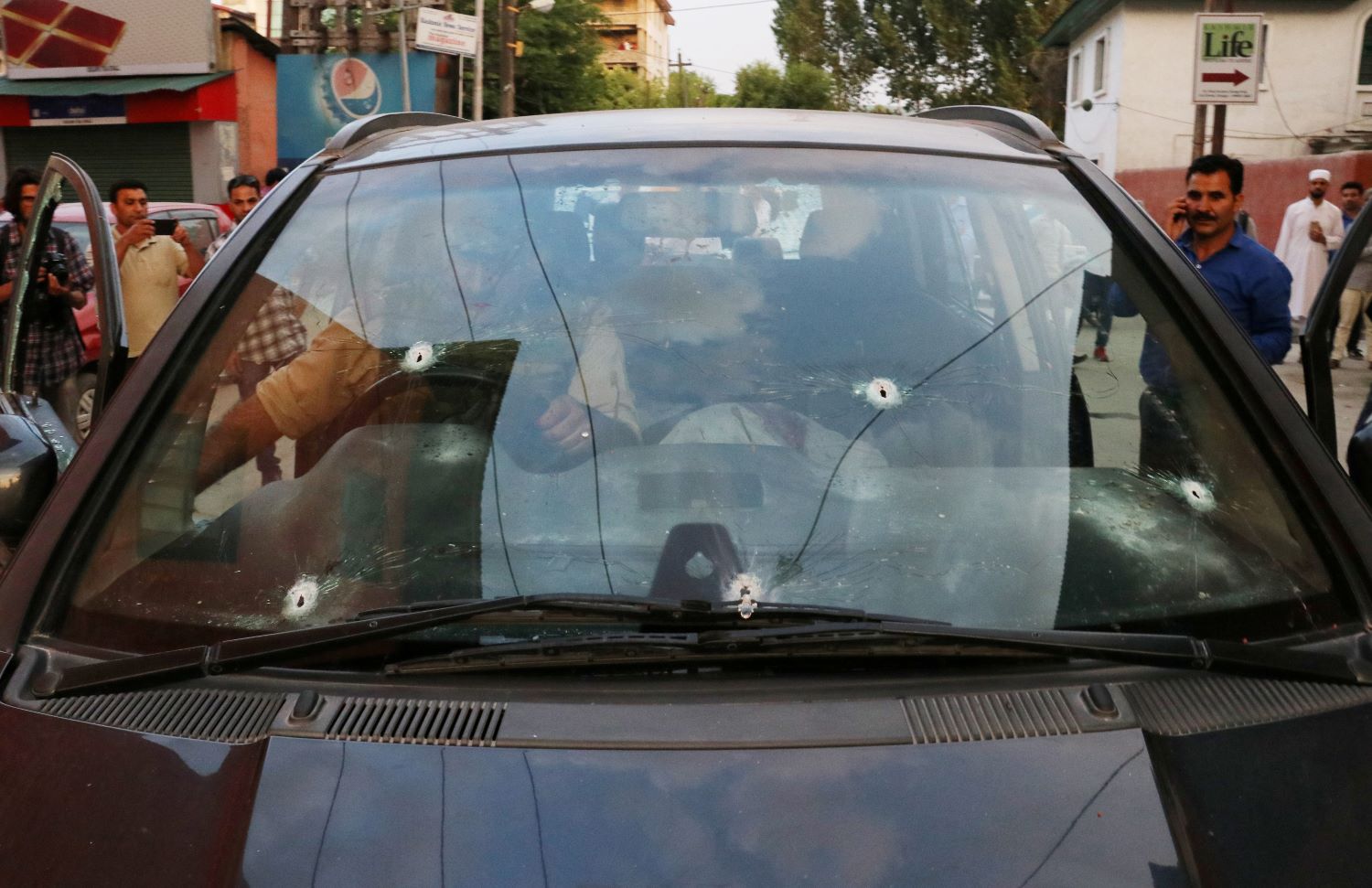
For this investigation into the mental health of journalists in Kashmir, Al Jazeera Journalism Review spoke to more than 20 journalists, both on and off the record. While some were happy to speak openly, many could only speak to us on the condition of anonymity for fear of reprisals. All of those who spoke to us on the basis of anonymity claim that the state is using a mix of harassment, intimidation, withholding of advertisements, surveillance and online information control to silence critical voices and force journalists to resort to self-censorship in order to remain safe.
One thing they also all agree on - their mental health is at risk.
According to mental health experts, the environment for journalists in Kashmir, who operate under a climate of fear, censorship and self-censorship, particularly since the removal of Article 370, is having a severe psychological impact on journalists.
When we get back home, do you even have the energy to do your journalism?
The mental health of journalists has been largely ignored as the community is assumed to be immune and resilient to psychological morbidity. As Ayyub said: “We are also human beings as we get affected tremendously by this, including our families.”
Anthony Feinstein, a professor of Psychiatry at the University of Toronto who has studied journalists in conflict situations, suggests in his research that journalists who cover conflicts, refugee stories, climate and natural disasters, violence, abuse and harassment, as well as human stories, face problems such as anxiety, depression, sleep and eating disorders, burnout, trauma and post-traumatic stress disorder (PTSD).
Studies have found that journalists’ work can impact their mental health. Research suggests that between 80 to 100 percent of journalists have been exposed to a traumatic event on the job, according to the Dart Center for Journalism and Trauma.
People who face disasters are at increased risk of psychological issues, mental health problems and diagnosable psychiatric disorders according to the former head of Government Medical College, Srinagar’s Psychiatry Department, Professor Mushtaq A Marghoob.
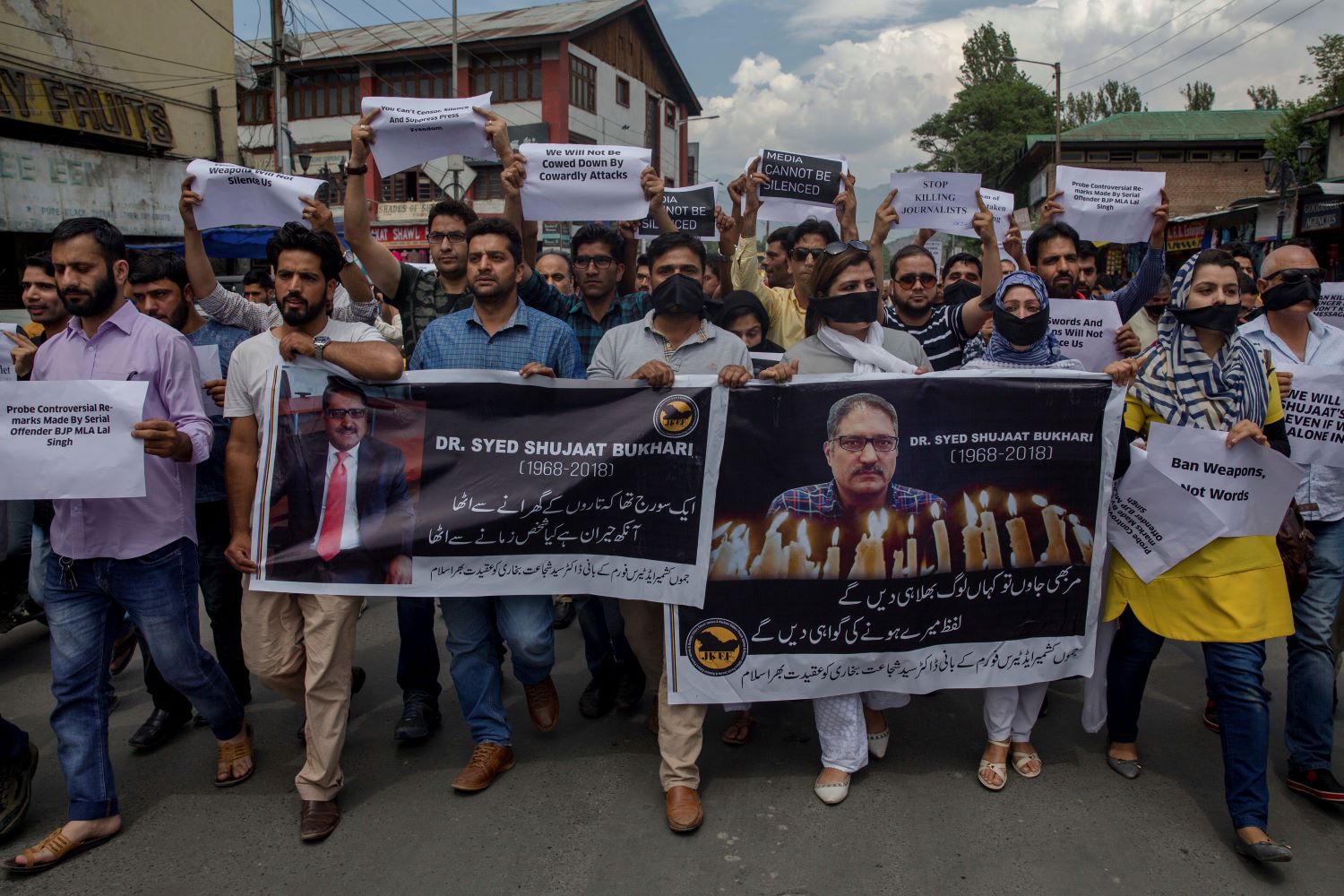
‘Orwellian policy’
The media in Jammu and Kashmir (J&K) has walked a razor’s edge for more than three decades, facing pressures from all sides of the conflict. India and Pakistan both claim the mountainous region and these two nuclear-armed nations have fought three wars over Kashmir.
“The media has travelled a long way through control and procedure of an autocratic government to harsh and intimidating censorship during the so-called democratic rule,” writes historian Khalid Bashir Ahmad in his book “Kashmir: Looking Back in Time - Politics, Culture, History”.
Journalists face oral ‘summons’ and interrogation as well as raids
“Before militancy took hold in Kashmir, the media was an extension of the state,” says Masood Hussain, editor and owner of Kashmir Life Weekly in a report by the International Federation of Journalists. “It was in the early 1980s that independent media in Kashmir emerged as a force to reckon with. In the face of great hardship, it has continued to show resilience and not to toe any particular line,” he adds.
Anuradha Bhasin, the executive editor of The Kashmir Times, revealed in an interview with the wire that government policies have virtually silenced the media and they are working under surveillance. They have also added to the mental health risks faced by journalists in the region.
“They face oral ‘summons’ and interrogation as well as raids as they are frequently being asked for ‘police verification’,” she says. In her book, “A Dismantled State”, she highlights the onslaught journalists’ face in Kashmir, especially after the repeal of Article 370. The book documents the arm-twisting methods used by the authorities to silence journalists from thrashings, detentions and criminalisation through laws and policies and the impact this ‘Orwellian policy’ has on the fourth pillar of democracy.
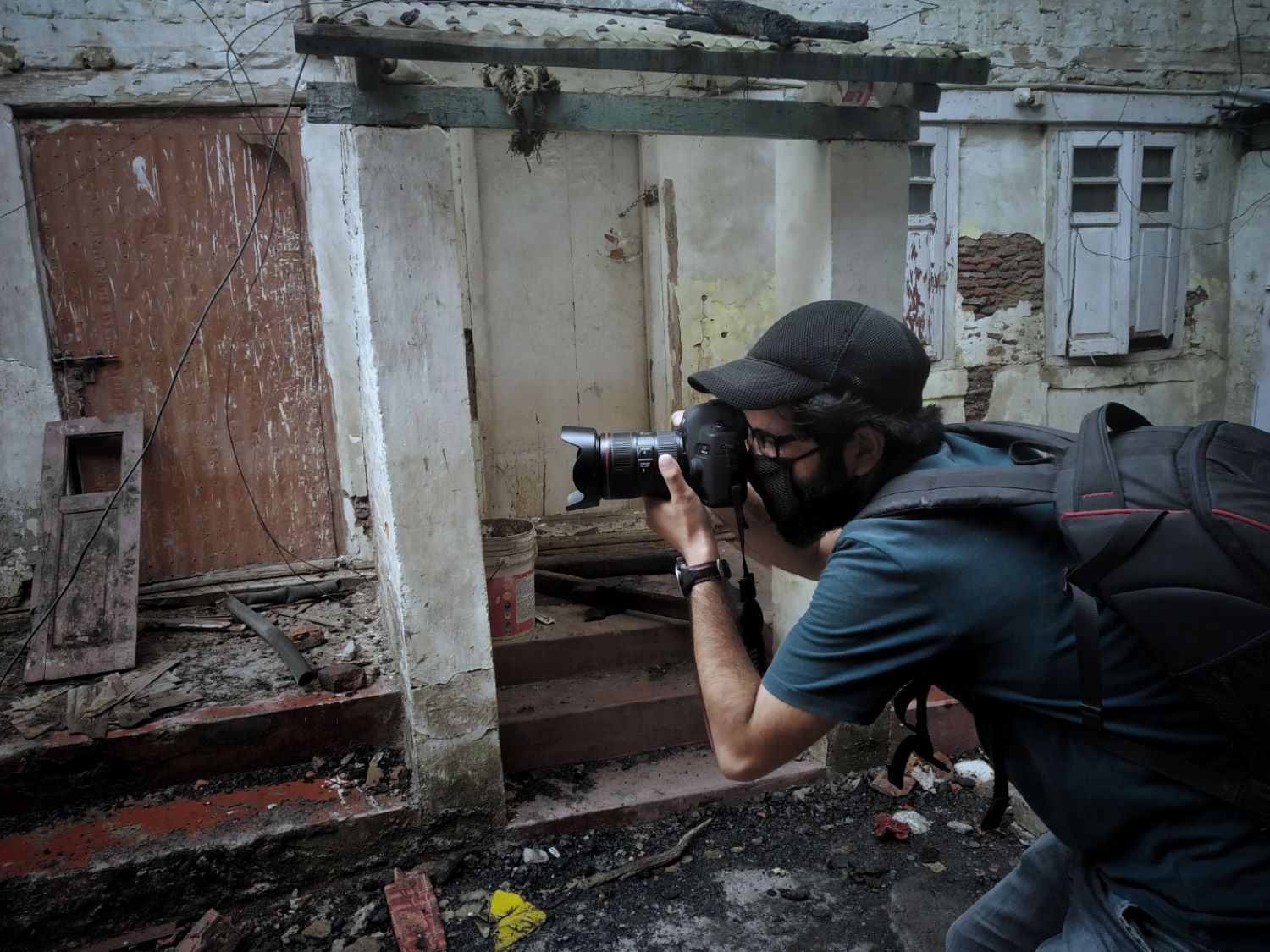
The number of journalists across the world who have been put behind bars for practising their profession has reached a record high, the Committee to Protect Journalists (CPJ), a non-profit body, reported last year. The CPJ said that 363 reporters as of December 1, 2022 - were being deprived of their freedom. According to the census, this year’s top five jailers of journalists are Iran, China, Myanmar, Turkey and Belarus.
In India, seven journalists are languishing in prison, however, and only two have been released. Many of the journalists who spoke anonymously to Al Jazeera Journalism Review for this article said that Imprisoning journalists is “just one measure” of how authoritarian leaders try to strangle press freedom.
“The media has suffered in the form of killings, direct attacks, intimidation, threats, and pressures from various quarters. Twenty-one journalists have been killed due to the conflict – either directly targeted or caught in the cross-fire,” the IFJ report revealed.
‘I don’t see myself flourishing in this job’
Life is especially tough for women journalists in Kashmir who work as a small minority in a field dominated by men.
One female journalist, Bisma Farooq, who has been based in Kashmir since 2013, says: “I have not reported on human rights, conflict and politics because I fear repercussions. I have self-censored myself because I do not want to be summoned to police stations because my family will not allow me to practise,” she says as she faces a lot of hindrances as a female in society. There are only two females among more than 20 males in an organisation Bisma is working for. “This gender disparity should be bridged in order for our voices to be better heard,” she adds.
According to her, everyone has mental health issues irrespective of the occupation in a conflict zone. “What aggravates the problem is the lack of help [from news organisations or welfare departments],” she says.
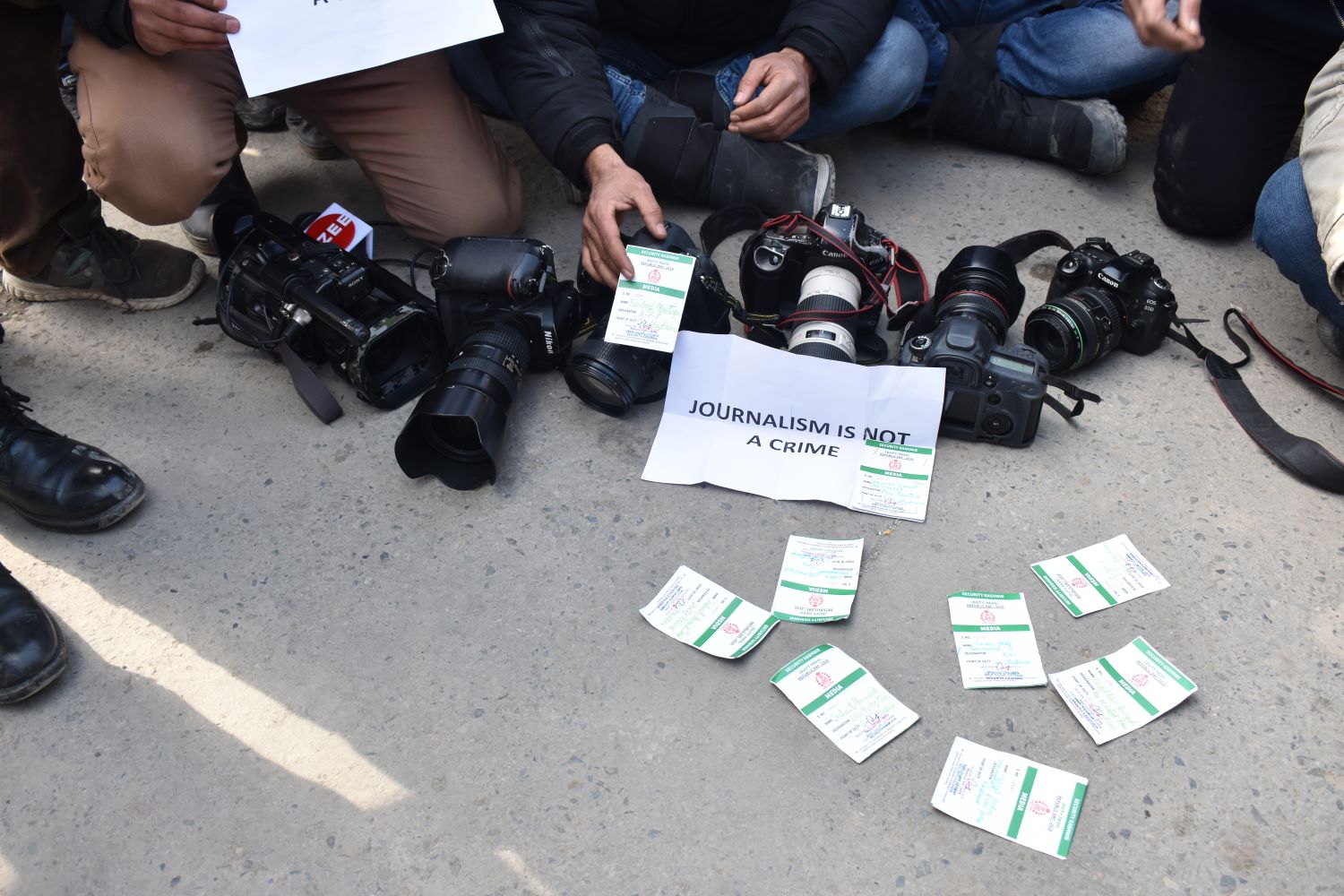
Her views are echoed by another female journalist, Urvat il Wuska. “The first challenge a female journalist faces is getting her parents to accept her decision to go into this profession. Even if they give you permission then there is societal pressure. We have many examples of good female journalists who have left this field after marriage,” she said.
According to her, female journalists have to prove themselves every day and justify their work. “Every day is a challenge for her. So those who have the mental strength to cope with these challenges remain in this field. But due to societal pressure some prefer to quit the job,” she says.
I have self-censored because I do not want to be summoned to police stations - my family will not allow me to practise
For women, journalism is far from easy as they also frequently have to contend with insulting comments from bystanders when they are reporting in the field, intimidation and fear of reprisals.
Maleeha Sofi, a journalism student based in Kashmir, says: “It has always been my dream to pursue a career in journalism but since I have been in it I don't see myself flourishing in it and the reasons are many.”
One result of the hostile environment in Jammu and Kashmir for journalists is that many stories are buried simply because the consequences of publishing them would be too onerous: harassment from the police, being put under surveillance, finding it hard to get jobs. According to her, on several occasions “it has been suggested” by other journalists and students to her that journalism is not for women and she should switch to some other profession. “Even though I never pay attention to such stuff, it somehow makes me question myself at times,” she adds.
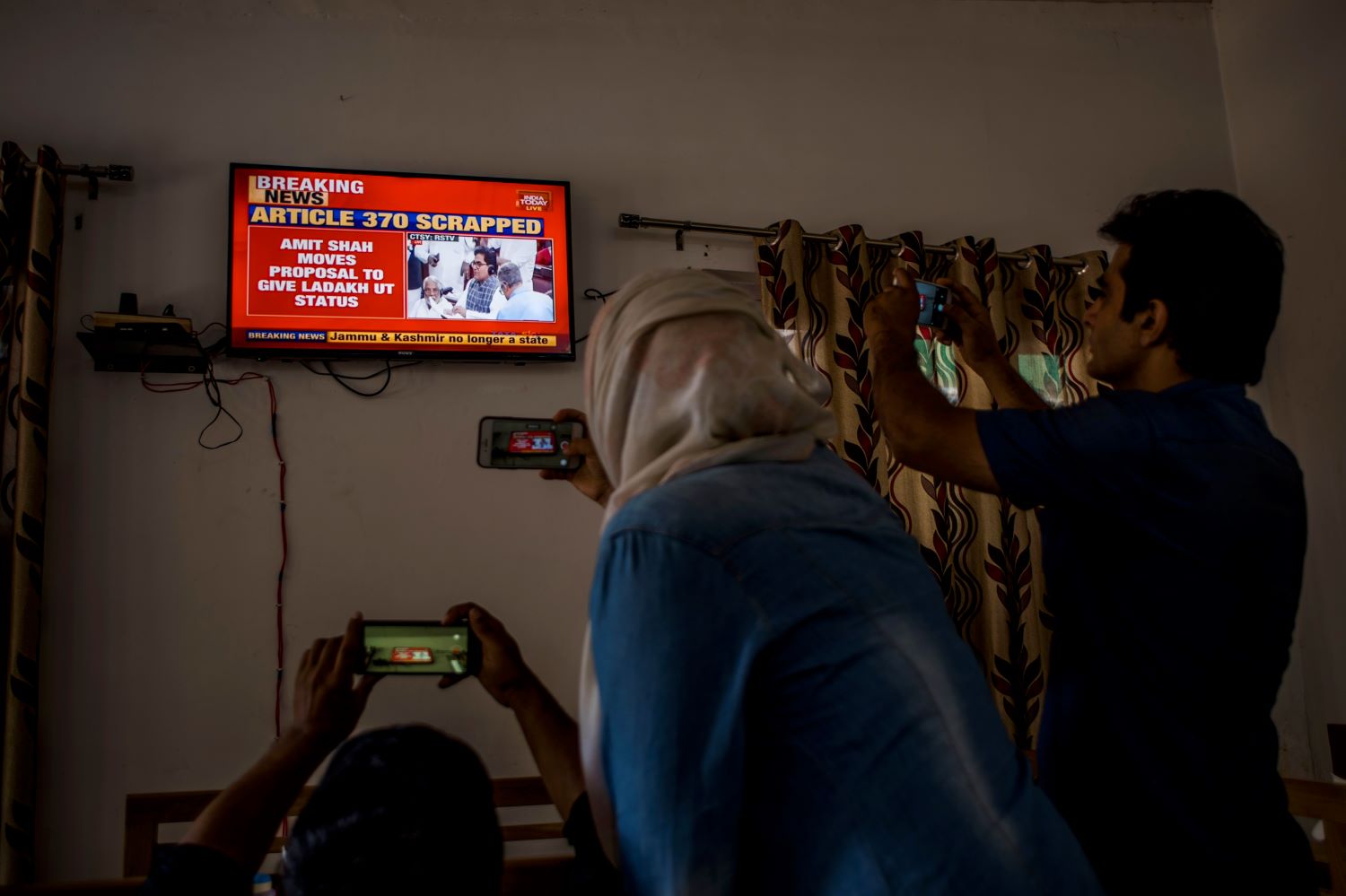
Money and mental health
The International Federation of Journalists (IFJ) highlighted the severity of the situation for journalists in Kashmir in a 2017 report. It highlighted that Kashmiri reporters work under extreme conditions including “intimidation by the government, low wages, lack of professional recruitment structure and support systems”. Further, the report added that when local reporters are recruited to jobs, for the most part there are “no appointment letters, no medical benefits, insurance or pensions or provident fund”.
According to the report, data collected by the Department of Information and Public Relations (DIPR) in Jammu and Kashmir, showed that advertisements worth $8,296,664 (603 million rupees) were placed between April 2019 and August 2020 in Kashmir. Of that total amount, the major share (around 40 percent) went to a handful of leading daily newspapers.
Interns often carry out major tasks at the paper, sometimes with no salary for up to six months
According to Indian labour laws, a journalist comes under the “highly-skilled” category. He or she is entitled to a minimum wage of 400 rupees a day which amounts to 12,000 rupees ($160) a month. However, many do not in fact receive even this level of pay and pay has remained stagnant for many years. This has a direct impact on mental health as journalists find they cannot pay basic bills and suffer stress and anxiety.
The IFJ report highlighted the precarious working conditions which have been exacerbated by the conflict. “Salaries are poor, with journalists working for as little as 5,000 rupees ($60) per month,” the report said. “Interns often carry out major tasks at the paper, sometimes with no salary for up to six months. The precarious financial state of the media industry in Kashmir appears to be the reason for the continuing insecure working conditions. In addition, saturation of the job market, with newly established journalism schools producing hundreds of graduates every year contributes to a glut in fresh entrants working for very low wages just to be able to gain experience and by-lines. This, many felt, results in devaluing professional journalism,” the report added.
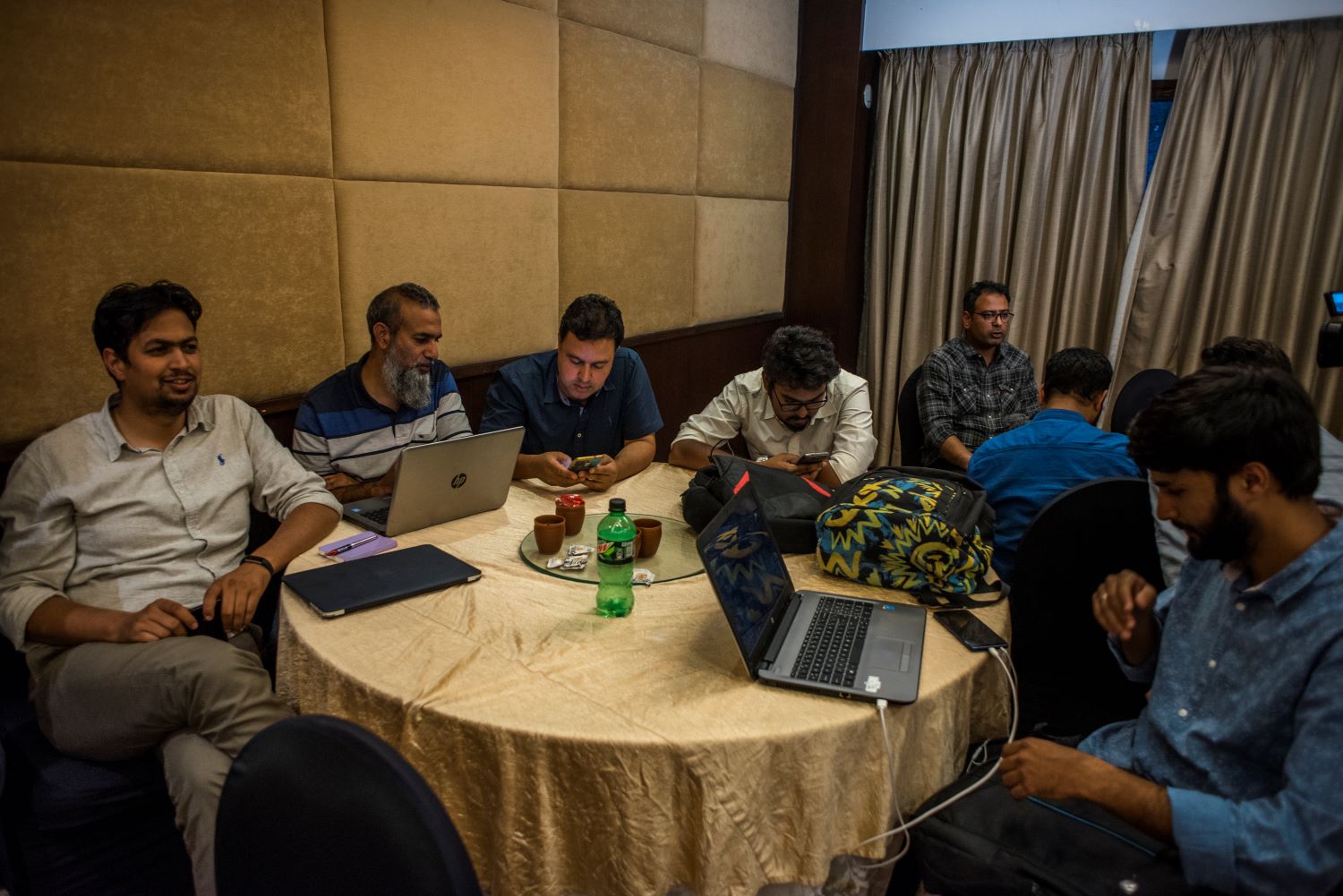
A news report in TRT, Exploitation of Journalists, explains how some star reporters and correspondents at the top of the hierarchy in newspapers and TV Channels have made a lot of money in India. This is often from conflict reporting but the rewards do not trickle down to more junior and local reporters. Soon after the repeal of Article 370, many journalists could not send their work to their organisations because of the resulting information blockades, and were forced to find other work instead, including physical labour.
Many journalists from Kashmir left the profession or moved to a different state. For many, staying in the job is just not feasible. As journalist Tahir Bhat says: “Despite working for 10 years in Kashmir one may [only] be getting around 10,000 rupees ($120) as a monthly salary.
“In local organisations, journalists are paid peanuts. It is not about any particular organisation, it is the whole structure in place. When one’s passion for journalism dies and the job does not pay well; one has to think of an alternative in some other career. It is the monopoly of a few people.”
‘We live in a state of perpetual fear’
Journalists in Kashmir are often among the first responders to events such as conflicts and natural disasters, yet little research has been undertaken into the impact this job has on their mental health, which is compounded by worries about money, job security and police surveillance. The Doctors Association of Kashmir has found that stress, fatty liver, hypertension and diabetes are common among Kashmiri journalists. But anecdotal evidence gathered for this investigation showed that many are also suffering from mental distress.
“There were at least four journalists in my newsroom who were on medicines to retain their sanity,” says Masood Hussain, the editor-in-chief of online weekly magazine Kashmir Life. “During the peak of COVID-19, I was personally on medication.”
Another journalist, who was recently “summoned” by the authorities, spoke on the condition of anonymity. With 10 years’ experience in local, national and international news platforms, he says that reporting from Kashmir is entirely different from working in other areas of India.
“Kashmir is a conflict zone. One has to tread carefully especially local journalists who may have to face the brunt of their work unlike ‘parachute’ journalists,” he says. “Kashmir is a security state where journalists are summoned, raided and harassed and their background details are checked.” He adds that journalists in the region live in a state of “perpetual fear, especially when families are involved. There is no [proper] journalism in Kashmir; locals are doing a PR exercise”.
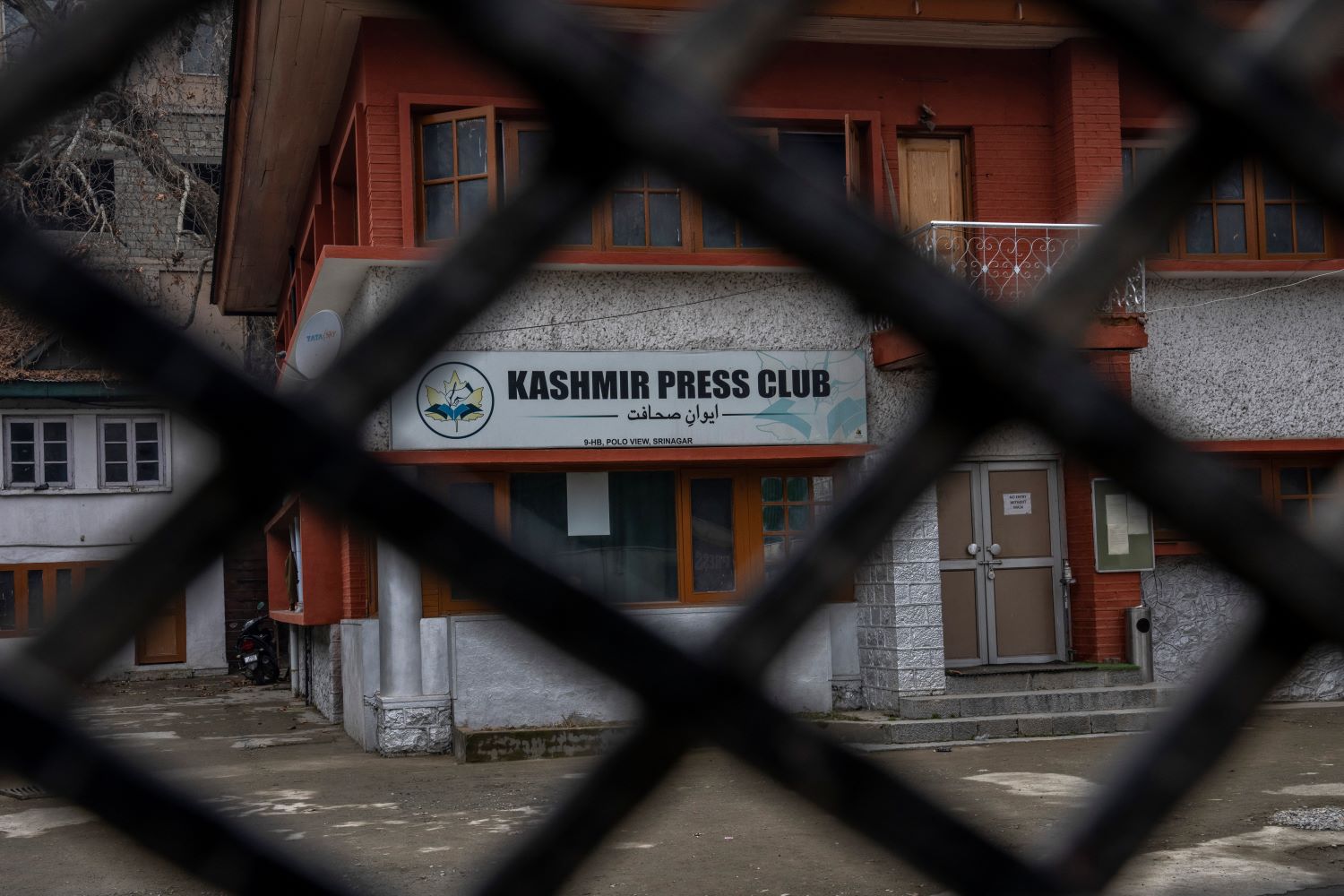
For the few who dare to step outside of this, the consequences can be severe. “I know many journalists who have panic attacks, Post Traumatic Stress Disorder (PTSD) and many are on medication,” he adds.
In the immediate aftermath of the repeal of Article 370 in 2019, the situation became critical for journalists in the region, he says. Many resorted to only travelling around the region in groups for fear of harassment.
On top of this, many were reporting highly distressing stories of mistreatment and security crackdowns from which they were unable to recover for months. “It was all because of what we had seen.”
In local organisations, journalists are paid peanuts. It is not about any particular organisation, it is the whole structure
Tahir Bhat, who has worked as a journalist in Kashmir for the past seven years, is currently working for a Delhi-based organisation. He says that he was also recently summoned by the police. “My activities were monitored. Every day I was getting calls from the police. My family was distressed and they suggested either I leave the profession or shift to some other state. It is very difficult to be a journalist in Kashmir,” he explains.
For Bhat, being unable to report certain stories causes him feelings of “moral guilt” and trauma. Bhat, who was previously an online editor at the weekly Kashmir Life, adds that the content he was seeing was at times violent and distressing and would keep him awake at night. “My sleep was disturbed because of the repeated cries or images I used to hear and witness. I am suffering from hypertension as my physical and mental health deteriorates,” he adds.
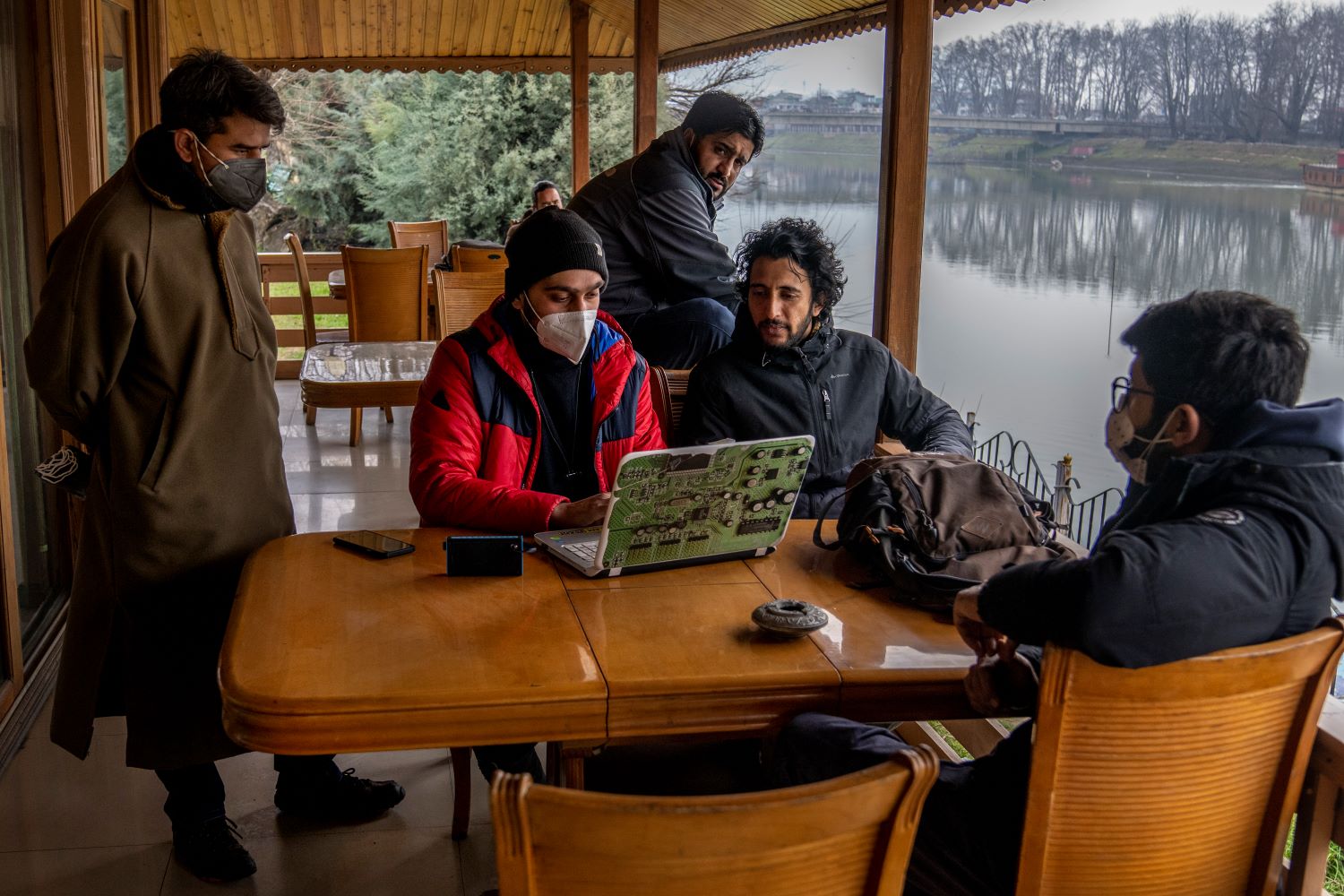
Accused of ‘narrative terrorism’
In March last year, the J&K State Investigation Agency (SIA) filed a charge sheet against the Editor in Chief of the Kashmir Walla online news outlet, Fahad Shah, was placed under “preventive detention” to “prevent him from indulging in the activities which are prejudicial to the maintenance of public order”. Nearly one year later, the High Court of Jammu & Kashmir ordered his release, finding that no evidence had been put forward to back the charge.
While this case hit the headlines, many such cases involving lesser-known journalists do not. The toll actions like this take on the mental health of those based in Kashmir is immeasurable.
Another journalist who has seven years experience working with multiple media organisations in Kashmir and wished to be cited by his first name only - Umar - says he has also experienced significant mental trauma while reporting from the field. “It is difficult and different to report from Kashmir as it is a conflict zone. There are only cons. There are multiple players and one is not aware of how the reportage will be received by multiple interests. It can hurt anyone’s interest as one faces constant uncertainty,” he says.
My sleep was disturbed because of the repeated cries or images I used to hear and witness
Kashmir is wedged between two nuclear powers and one has to be extra careful while reporting. “A single, simple word can land a journalist in jail or cost his life,” he says.
The situation for journalists has continued to deteriorate in recent years, says Umar. The killing of Shujaat Bukhari in June 2018 instilled a huge amount of fear. “Since then, many journalists have been summoned to police stations because of their reporting.”
The latest trick by the authorities is to label a journalist as a peddler of “narrative terrorism”, Umar says. “One does not know when one's writing will be termed as ‘terrorism’. This state creates a larger, dreadful circle of censorship and a journalist resorts to self-censorship.”
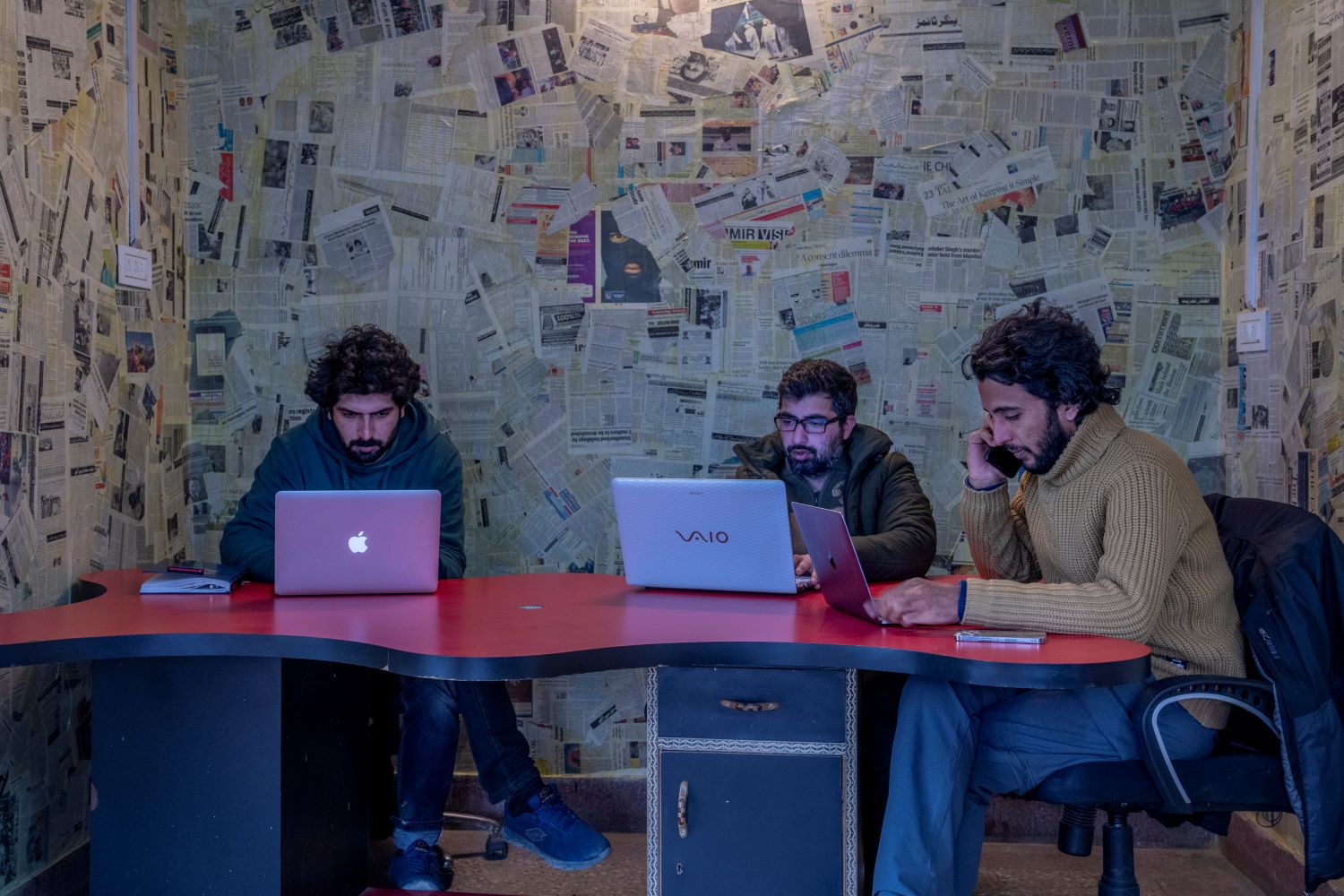
He adds: “When I was summoned by police authorities in 2021, I feared that I may be tortured, an FIR (First Information Report - a document prepared and issued by the police) may be lodged against me or I may be jailed. However, I was accompanied by colleagues who gave me courage. But this support is lacking now for the larger community.”
He himself has had to resort to self-censorship as he fears his family will suffer because of his work. But this in itself has caused him mental distress. “What psychologically inflicts more pain is not meeting a victim, but not being able to report about it. It makes one's mental peace go astray,” he says.
Mental health - a ‘utopian and luxurious idea’
Professor Mushtaq A Marghoob, the former head of Government Medical College, Srinagar’s Psychiatry Department, says journalists are not immune to stressors and are vulnerable. “Journalists have put up a mask and they don’t want to be seen as weak,” he adds.
Furthermore, the problem is not talked about and society at large considers this issue a “utopian and luxurious idea”.
Studies from other countries, however, show it is anything but. A study of the psychological well-being of Iranian journalists published in the Journal of the Royal Society of Medicine Open in December 2016 produced significant findings about journalists in Iran.
My family was distressed and they suggested either I leave the profession or shift to some other state
The study found that in many cases Iranian journalists were living in fear of harm - be it assault, arrest, torture or intimidation. These threats extended to their families as well, most notably in the cases of two-thirds of journalists who had gone into exile. Arrest, torture, and intimidation were linked to PTSD symptoms, and assault and intimidation were linked to depressive symptoms.
Around one-third of the journalists surveyed had moderate to severe depression. Nearly half of the journalists surveyed - 46.5 percent - were not receiving therapy. Of those who had sought treatment, 60 percent said they did so because of their experiences as journalists. Nearly one-third of respondents said they had resorted to self-medicating in response to the stresses they experienced.
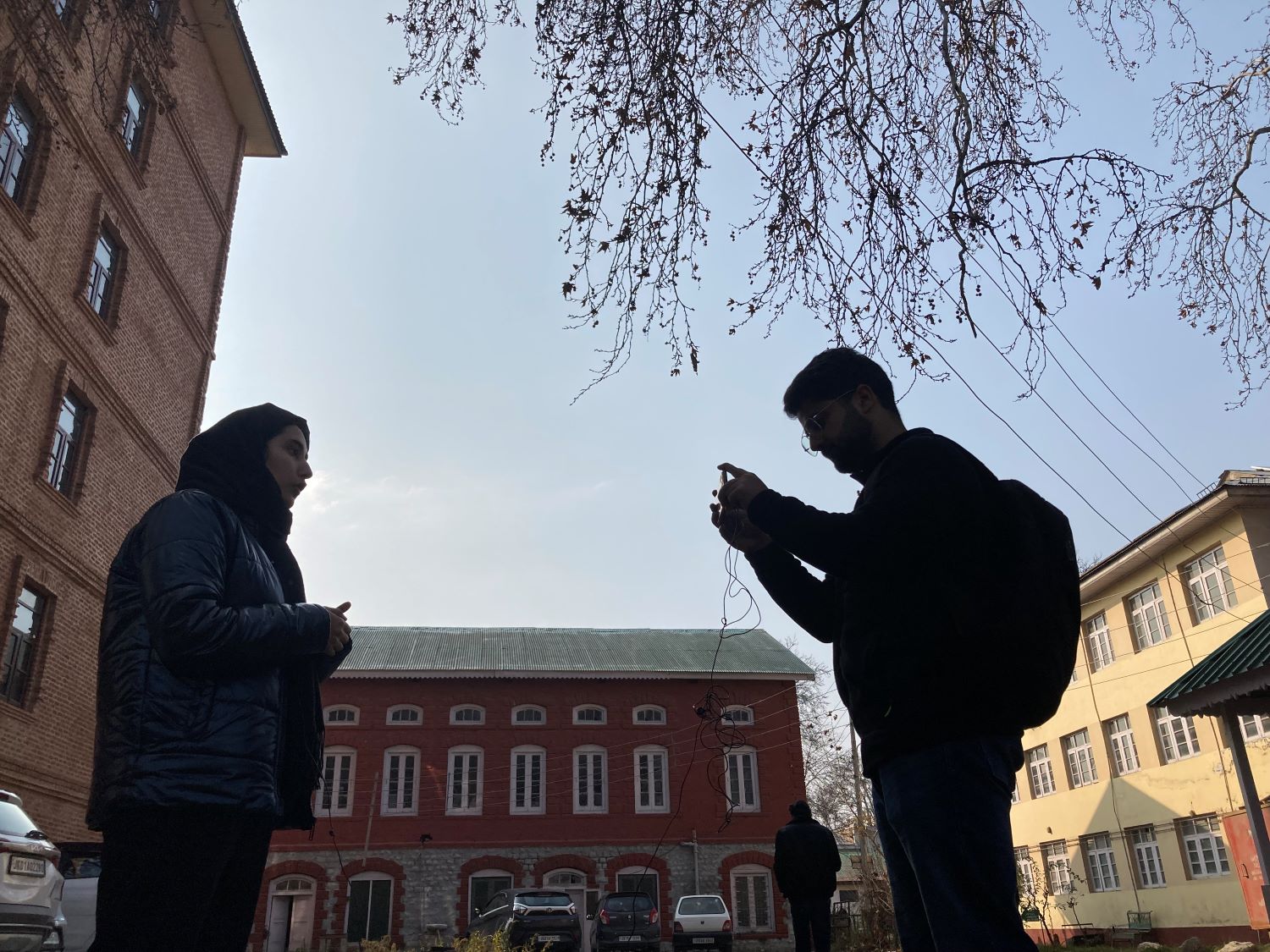
It is the observation of psychiatrists that financial instability, intimidation, harassment, and job insecurity can have a significant impact on the mental health of journalists. According to Dr Yasir Rather, Professor at the Department of Psychiatry, GMC Srinagar, it is well documented that the people of Kashmir have experienced prolonged socio-political instability for many years. These factors can contribute to mental health issues such as anxiety, depression and post-traumatic stress disorder (PTSD).
For the journalists documenting this instability and conflict lack a social sphere in which to articulate the stress they experience as there is no formal mechanism within the industry to assist. They are on their own when it comes to mental health.
As the editor-in-chief of Kashmir Life, Masood Hussain, says: “We are living on hope amidst a paucity of resources. However, freelancers are holding the fort amidst curbs and censorship. They are not walking but dancing on razor edges.”
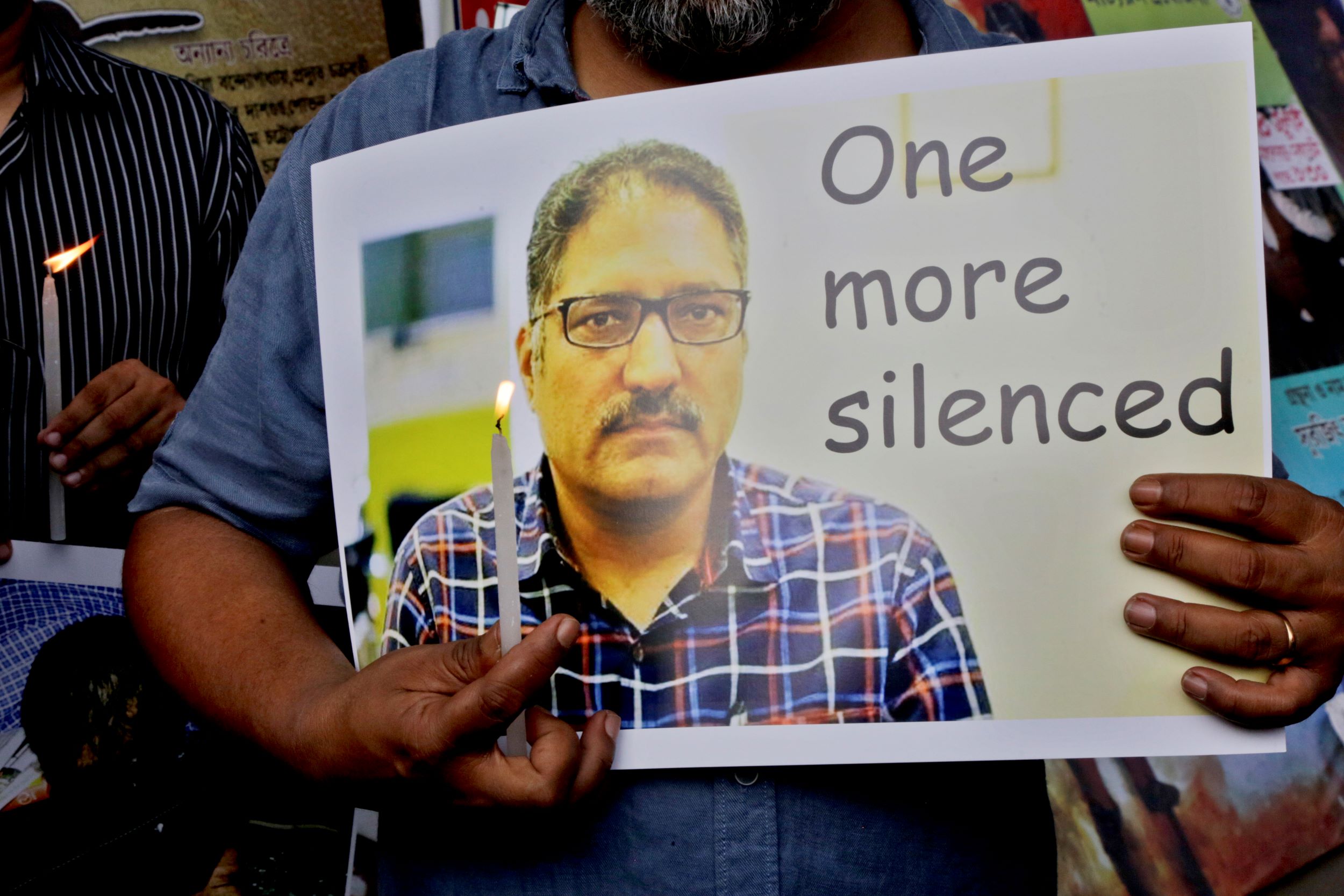

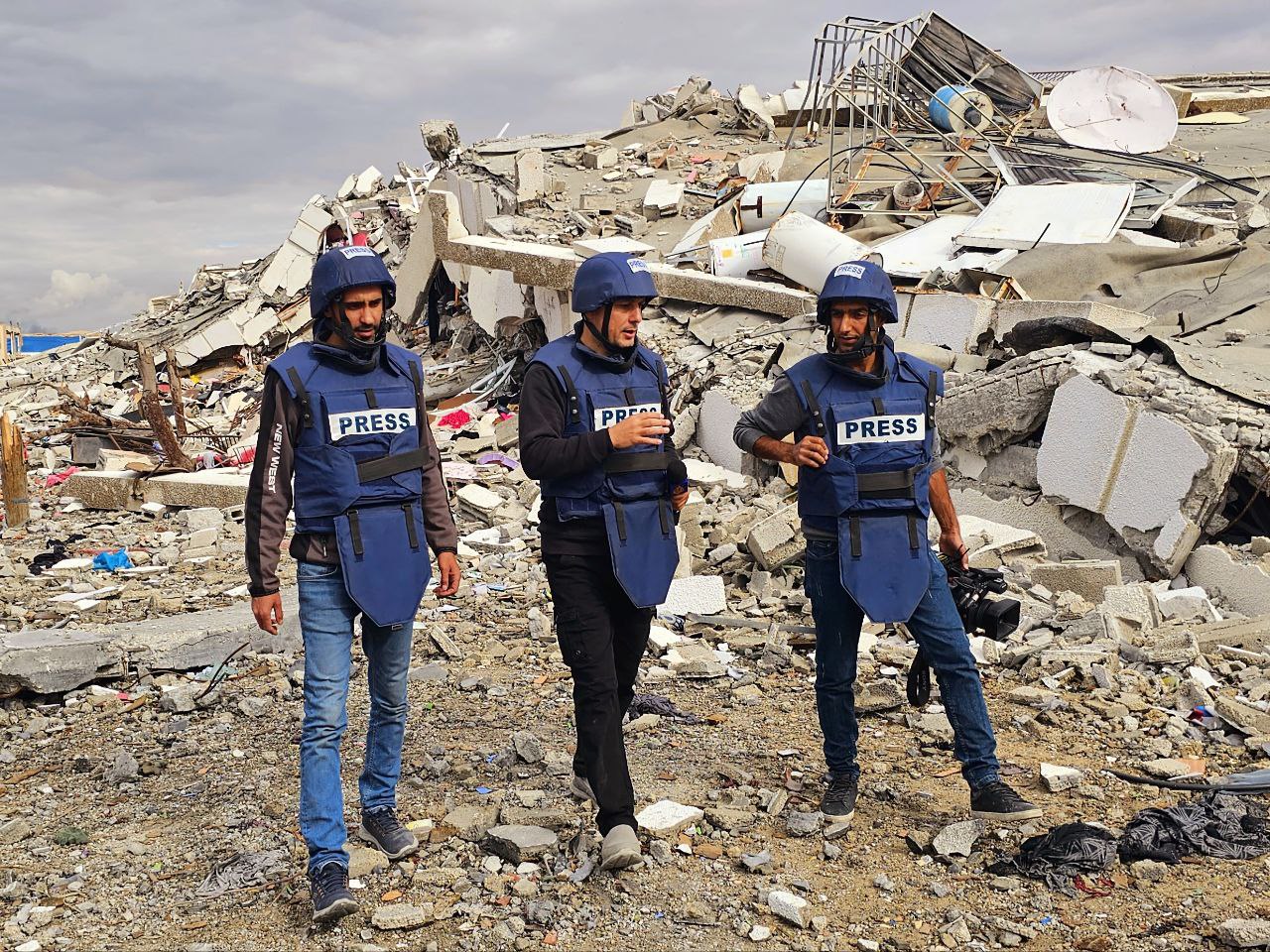




























![A demonstration against Israel's war on Gaza on Paulista Avenue in São Paulo on November 4, 2023, draws attention to the deaths of children while the media focuses on the war against terrorists. [Photo: Lina Bakr]](/sites/default/files/ajr/2024/Picture1.png)

